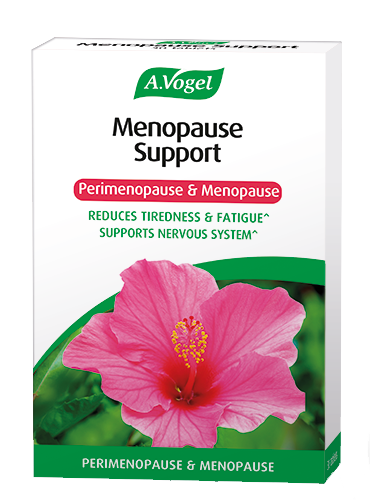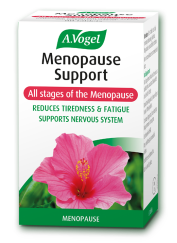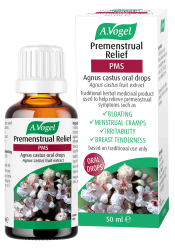An introduction to periods and weepiness
Do you feel particularly low or fed up around the time of your period? Some women instead find they become angry or frustrated, or a mixture of both, as mood swings can also take hold. It can be an emotional rollercoaster for many of you and often fluctuating hormones appear to be to blame as these changes in mood turn out to be cyclical. Keeping a symptoms diary can be useful to determine if your changing mood fall are in sync with your menstrual cycle. However, if your low mood is persistent and doesn’t seem to ease off, you may want to visit your GP.
On this page I discuss these feelings of low mood – it isn’t uncommon to feel sad, anxious or that your self-confidence is lacking at certain times of the month. I explain why you might suffer from low mood or weepiness around the time of you period, outline some self-help tips and then go on to discuss how herbal remedies can help you.
It is important to mention that if cyclical episodes of low mood or weepiness are particularly severe and / or occur in combination with a range of other symptoms around the time of your period, this could be a sign of premenstrual syndrome (PMS). Click the link to learn more about the symptoms of PMS.
Causes
Menstrual emotions are commonly accepted by many, but, although feeling down is a common complaint, very often people struggle to understand why it is happening. Is it in your imagination? Is it an underlying issue that you can just blame on your period? Or are you particularly vulnerable at a certain time of the month for a reason.
The causes behind your changing moods aren’t completely understood but I explore some possible theories as to why you can be left feeling so teary-eyed.
- Sex hormones – Female sex hormones are the number one reason you are likely to feel so emotional each month. Women experience lots of fluctuations throughout the month (and our lives for that matter) and this is generally thought to be the reason why women are more emotionally unstable than men! The second half of your menstrual cycle (in the two weeks leading up to your period) is generally when women suffer emotionally and get all teary, so what’s happening? Progesterone is at its highest here. Progesterone can be thought of as the ‘calming’ female hormone compared to oestrogen, but if it becomes too dominant, we can be left feeling down, de-motivated, nervous and lacking in self-confidence. The ratio of progesterone relative to oestrogen is also key. If oestrogen is diminished (menopause is a nice example) low mood can become apparent. The fluctuations in these hormones are really important and can have a significant effect on your mood, especially in vulnerable times such as in pregnancy or peri-menopause
- Other hormones – Although sex hormones are thought to be the main cause of dips in your mood, they can also influence other hormones which can contribute. Cortisol is an example of this, a hormone which is released in times of stress. Progesterone is a precursor to cortisol and an imbalance could affect its production (you could end up with too much). Serotonin is also an important hormone which has a role in regulating your mood. Oestrogen has a role in regulation serotonin and the appropriate receptors in the brain, so, low levels of oestrogen could influence serotonin production
- Underlying issues – Taking the effects of all of these different hormones into account, if you have some underlying issue already, fluctuating hormones could suddenly make your symptoms a whole lot worse. For example, if you already have a lot of stress in your life or suffer from anxiety, a hormone imbalance could exacerbate these issues.
Lifestyle changes that can help
So what can be done to help curb the weepiness you experience around the time of your menstrual period? I describe some lifestyle advice which can help to support your mood
- Do things you enjoy – It might sound simple but if you are most vulnerable around the time of your period then plan around it and make sure you are doing things you enjoy! Have a manicure, go for a fancy meal or read your favourite book. Take the time to have some treats and feel better about yourself
- Exercise – Now keeping in mind tip number one, exercise is important, but, so is finding something you enjoy. Whether it’s an upbeat spin session at the local gym or a speed walk with your best friend (you can have a gossip at the same time), believe it or not exercise is good for both your mental wellbeing and for other symptoms of your period, such as cramp, for example. Exercise helps to increase blood flow around your body and increase feel-good chemicals called endorphins. Endorphins help to lift your mood
- Limit stress – Feeling overly stressed can really affect your mood. Consider what aspects of your life are adding to your stress and aim to address them.
Herbal remedies to help
There are some herbal remedies available that could help you to lift your mood.
- Soy isoflavones – Fermented soy isoflavones aren’t a universal solution for low mood but they can be useful to help address a hormone imbalance, particularly if low oestrogen is thought to be a problem. This is particularly useful for menopausal women, but a similar imbalance can occur in younger women too. The balance between oestrogen and progesterone is crucial and if you find you are particularly weepy, with low self confidence, very low in energy, potentially having problems with your skin and your periods are light or irregular, it could signal you need to better support your oestrogen levels. Please note, if you are taking hormonal contraceptives such as the pill, hormone-balancing herbal remedies may not be suitable for you
A.Vogel Menopause Support | For Perimenopause, Menopause & Postmenopause Symptoms
£8.99 (30 tabs) In Stock
- St. John’s Wort – If addressing your underlying hormonal issue doesn’t help, you may consider using St. John’s Wort. St. John’s Wort is a traditional herbal remedy used to relieve symptoms of low mood or anxiety as it gently supports the nervous system. However, if you are feeling depressed you should always see your doctor.
- Valerian and Hops – Fresh extracts of Valerian and Hops come together in our formulation for Stress Relief Daytime drops. This product can be very useful if mild stress or anxiety is affecting your mood.
How can my doctor help?
If home or herbal remedies aren’t helping to address your low mood or weepiness around the time of your period, it may be worth to pay a visit to your doctor.
If the change in your mind is cyclical and is in sync with your menstrual cycle, your doctor might suggest trying a form of hormonal contraception, for example the pill.
If your low mood is more serious, and affects you at times which suggest sex hormones at to blame, anti-depressant medication might be an option.









